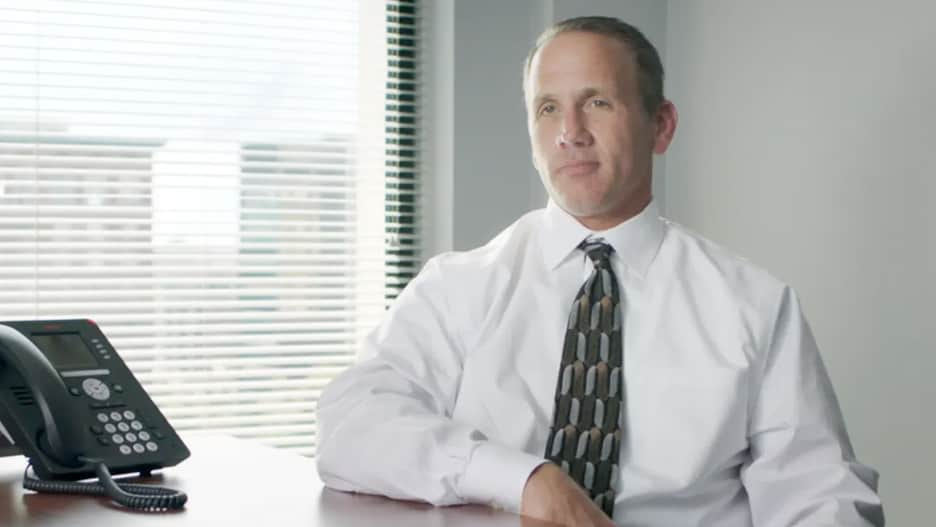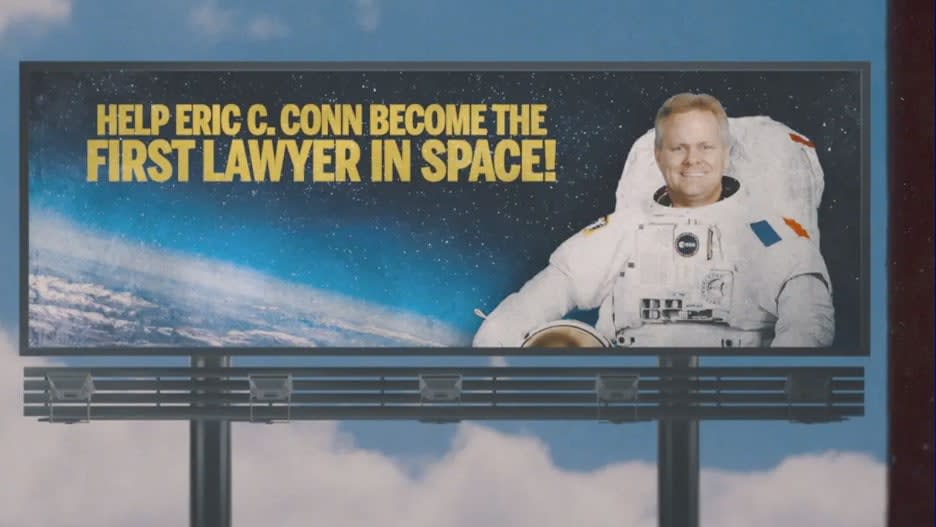Why the FunMeter Duo Is Expanding From Docs About ‘Quirky Fraud Cases’ to Become ‘Full Service’ Producers
James Lee Hernandez and Brian Lazarte brought us the riveting HBO docuseries “McMillions,” about an ex-cop who rigged the McDonald’s Monopoly game promotion for a decade; and their latest, and first project under their FunMeter banner, “The Big Conn,” is now streaming on Apple TV+.
“The Big Conn,” which just launched a companion podcast, is also about a real-life account of a massive con — in this case, run by Kentucky lawyer Eric C. Conn, who pillaged Social Security funds. But FunMeter isn’t confined to what Hernandez called “quirky fraud cases,” with upcoming forays into the worlds of sports and music.
The partners are also opening their doors to other filmmakers as producers, with a number of yet-to-be-announced projects in the works. “With our company, we always saw it as, ‘Here’s an opportunity for us to help other filmmakers and other producers and other directors,'” Lazarte told TheWrap for this week’s Office With a View.
Added Hernandez, “We don’t just want to throw our names on something and say, ‘Oh, here you go. Yeah, we were part of that.’ Everything that we put our names on, everything that FunMeter does, we like to be involved with to just help make it as good as humanly possible. We are full service.”
Hernandez and Lazarte discussed how they sold “McMillions” to HBO, how they choose projects, and why they’re branching out.
When did you first start working together?
James Lee Hernandez: I used to work for Brian’s wife at Hallmark’s SVOD service, and we’ve known each other for years. It all started with “McMillions.” I was getting into that and Brian has a phenomenal history in documentary filmmaking for a decade or more. After several years waiting to get permission from the FBI and finally being able to dive in with them, we decided to dive in full force. And then we partnered with Mark Wahlberg and Steve Levinson and Archie Gibson at Unrealistic Ideas and partnered with HBO on that, and we just put the pedal to the metal.

Why did you decide to create FunMeter?
Hernandez: We wanted a place where we can do everything on our own and not have to rely on anybody else. And it has been a fantastic, fun ride. We’re extremely fortunate and very thankful to Apple TV+, and I’m thankful to our entire team at FunMeter to be able to make this. If we weren’t getting paid to do this stuff, we would probably pay double to do it still at the same level. But for some reason, it still keeps happening.
What makes a project right for FunMeter?
Hernandez: We really like to focus on the left of center, stranger than fiction-type of a story that has really rich, interesting, often comedic characters, but has a very serious moral undertone to it. Life is not black and white. Sometimes good people make bad decisions. We like to see people make decisions within that gray area and really mess with people’s moral compass, in a sense.
Lazarte: We have to have fun making it. When you spend so much time around the same people, or you’re digging into a story, we want to make sure that we have fun as a company, that we are engaged with the story, that we’re excited by it, and that we find humor in it, because when something is just too depressing for too long, it just [doesn’t work].
We’re looking for stories that are going to draw us in. And we’re looking for great storytellers that can help guide that along. We’re also looking for a journey that you can go on with any one of our characters. In the case of “The Big Conn,” we had two different sets of heroes, multiple sets of villains, and really unique characters. ln episode one, you go on a journey with [Washington Post economics editor] Damian Paletta. And that is key to understanding it is [having] a certain point of view.
Are you looking to move the needle on how people think about what led to these ethical scandals in the first place?
Hernandez: In a sense, yes, especially with “The Big Conn.” It’s very easy to get caught up in this larger than life, crazy character who’s basically Saul Goodman in “Better Call Saul.” And that’s essentially luring you into the real story, which is that the way Social Security works has largely not changed in the last 50 to 60 years. And not only has it not changed, but there has been no oversight or inquiry by anyone else in the government. And in a situation like that, when you have that much money involved, that’s something that should have a lot more oversight.
What’s your next project?
Hernandez: We [never said], “We’re only doing these quirky fraud cases.” And after doing “McMilions,” we didn’t think that we were going to do another fraud case. But when this started to incubate at the end of “McMillions,” Peter King, who’s also an executive producer on this, brought it to us and it just had all these interesting moral questions that we love.
But as a company, we’re doing a couple of things that are sports related, we’re doing a couple of things that are music related. And with all of those things, we just take a different viewpoint, a different angle on telling those stories.
Are there any topics you steer clear of?
Hernandez: Using moral questions with quirky characters within a specific story, sometimes that might involve a murder, but it’s hard to live in that headspace for a couple of years when you’re diving into something.

Is it harder to place a true crime docuseries that isn’t about murder?
When we had our pitch with [HBO documentary heads Nancy Abraham and Lisa Heller] for “McMillions,” we said, “It’s about the McDonald’s Monopoly fraud game, and it’s a true crime documentary series. And nobody really dies. And nobody was wrongfully accused or went to jail for 20 years.” And it took them a while to wrap their heads around that. Like, “Oh, yeah, it’s gonna be funny.” We like to push the fun, but at the same time, we also like to push the moral questions.
Do you prefer to work in scripted or unscripted?
Hernandez: We’ve been very fortunate that after making “McMillions” and “The Big Conn” and some of the other things we’re doing, we’ve been able to dabble in both scripted and unscripted. Both Brian and I have been editors, we both have scripted and unscripted backgrounds. And for us, it was just a natural way of doing it. That’s kind of the beauty of what’s going on now. You can, in a sense, not blur the lines of where you’re faking the storytelling, but the way that you’re telling a story, you just have so many more tools in your toolkit to achieve that now and really try to take advantage of all of it.
You’ve worked with HBO and Apple, but you don’t have an overall deal anywhere?
Lazarte : The hope for us is that we can continue to make the things that we make. James and I are first and foremost directors, but we’re also producers, and with our company, we always saw it as, “Here’s an opportunity for us to help other filmmakers and other producers and other directors either develop their projects from the ground up, or partner with us to do these types of shows, whether it’s a feature, scripted project, feature documentary, or a podcast or documentary series.” We’ve had great fortune over the last couple years to find great stories and we wanted to partner with some great people and producers to develop and curate projects. Our goal is to decide whether there’s a good enough story and there’s good enough storytellers to tell it. That takes time. And we’ve been doing that with a number of other projects, because, you have to put that time in to really figure out, “OK, is this really going to be worth the investment — both of time and resources?”
What’s your approach as producers?
Hernandez: We’re very curated. We created FunMeter not only for things for Brian and I to direct but also to shelter other filmmakers and help bring things to light and work with people that we really like and respect. In that sense, we like to keep it small, because we want to be involved.

